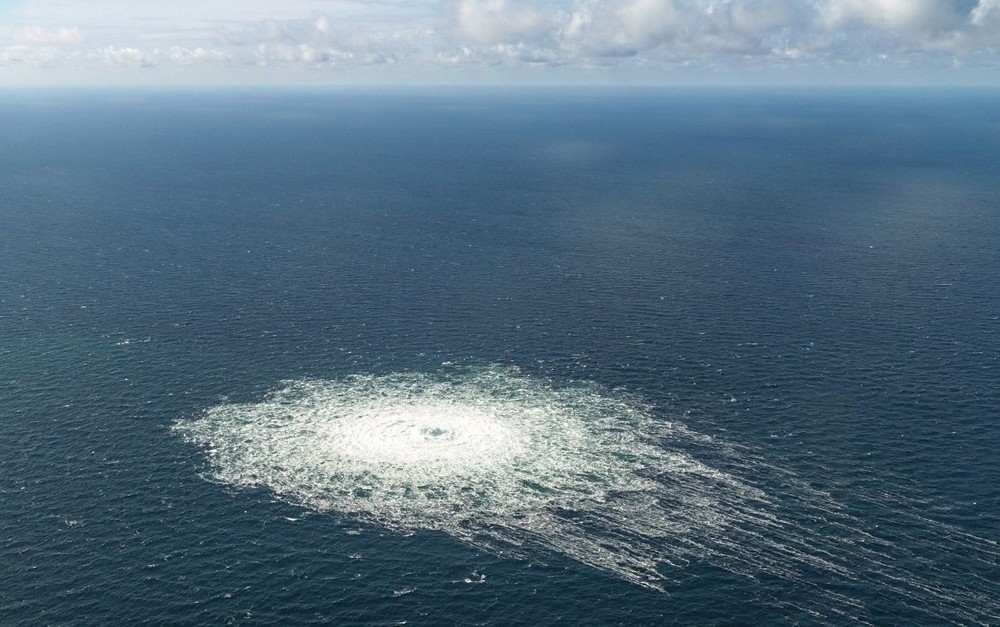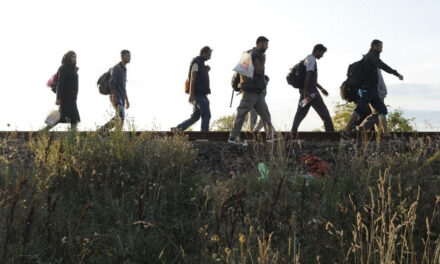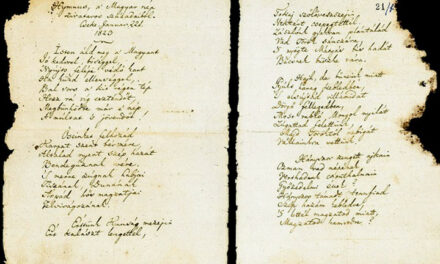For many months, it was taboo to talk about the fact that blowing up the Russian-German undersea gas pipeline could not be in Moscow's interest, but could be in Kiev's. The German authorities are now looking for the culprit.
Volodymyr Zhuravlov is the name of the Ukrainian diving instructor from Kyiv, who is wanted by the German police. According to German press reports
the German prosecutor's office identified the man based on photos and witness statements,
and issued a European arrest warrant against him back in June, but the man managed to escape from the hands of the investigators. He is said to have been hiding in a village near Warsaw after the operation, and when he heard about the arrest, he managed to return to Ukraine from Poland at the beginning of July (according to the spokesperson of the Polish prosecutor's office, the Polish border guards did not arrest him because the German authorities did not enter the name of the arrested person into the EU database).
The German prosecutor's office treats the Ukrainian man as a suspect,
he is wanted as one of the perpetrators of the bombing on September 26, 2022.
According to the suspicion, the perpetrators of Ukrainian nationality hired a yacht called Andromeda, with which they sailed to the part of the Baltic Sea near the Danish island of Bornholm, where the Nord Stream I and II natural gas pipelines run on the seabed, and then, diving from the ship in diving suits, planted the explosive devices on the bodies of the pipelines. .
According to information from the German news program Tagesschau, the two other Ukrainian suspects are a married couple whose first suspect was an instructor at their diving school. However, Politico reached Svitlana Uspenska on Wednesday, who denied that she was part of the 2022 action, they have a solid alibi that they were in Kiev at the time of the bombing. Uspenszka currently lives in Poland, and as she claimed, her husband, Yevhen, is fighting against the Russians as a soldier in the Ukrainian army.
In the act of sabotage, three of the four lines were seriously damaged, and transport had to be stopped in the system stretching from Viborg in Russia to Greifswald in Germany.
The bombing immediately sent geopolitical waves during the war in Ukraine, and the finger-pointing immediately began.
Who could be interested? - many people asked the question, and four suspicious states came under the crossfire of interest: Russia, Ukraine, the United States and the United Kingdom.
Interestingly, although Germany immediately made an ideological decision: it announced that it would end its gas purchases from Russian sources,
the German authorities indicated that they were aware that Ukrainian groups planned to blow up the pipeline as early as 2014
Die Welt and Politico reported on this. The latter notes that Ukraine has opposed this energy project since Nord Stream I was put into operation in 2011, which directly connected the Russian gas supplier to the German consumer market under the Baltic Sea by avoiding Ukrainian transit lines.
There was a big dispute between the Russians and the Germans around Nord Stream II, which was only exacerbated by the war - Ukraine's ally, the United States, Poland, which is the most afraid of the Russian threat, and other states sharply criticized Germany as to why it was taking part in another into a joint energy megaproject with the aggressor Russia.
After the sabotage operation, Russia requested an international investigation in the UN Security Council, but it was voted down in the body.
Moscow subsequently objected to the fact that Danish, Swedish and German experts were excluded from the investigation, but American experts were allowed to participate in the investigation. In these months, the Scandinavian media regularly wrote about the fact that in the days before the bombing, Russian spy ships were detected by units of the Danish coast guard.
The responsibility of the United States was first reported by The Washington Post, as it was written, the American intelligence had information that the Ukrainians were already planning a sabotage action against the pipelines in the Baltic Sea three months before the bombing attack.
However, the German and other EU secret services treated this information as disinformation of Russian origin,
which are intended to divert suspicion from the real culprits because they were convinced that the Russians had carried out the bombing.
Politico notes: the Polish authorities also approached the factual investigation of the case with a blind eye, already at the initial stage of the investigation they sent the data of the Russian persons involved to the German authorities, but even the Germans perceived this as a wrong direction. The paper also adds that
the Danish and Swedish investigations launched into the case ended without concrete results,
these did not name suspects or the state interested in the bombing.
Cover photo: Image provided by the Danish Armed Forces of bubbles breaking on the surface of the sea in a circle roughly one kilometer in diameter due to the leakage of the Nord Stream 1 and Nord Stream 2 natural gas pipelines that carry natural gas from Russia to Germany off the island of Bornholm in the Baltic Sea on September 27, 2022
Source : MTI/AP/Danish Armed Forces













